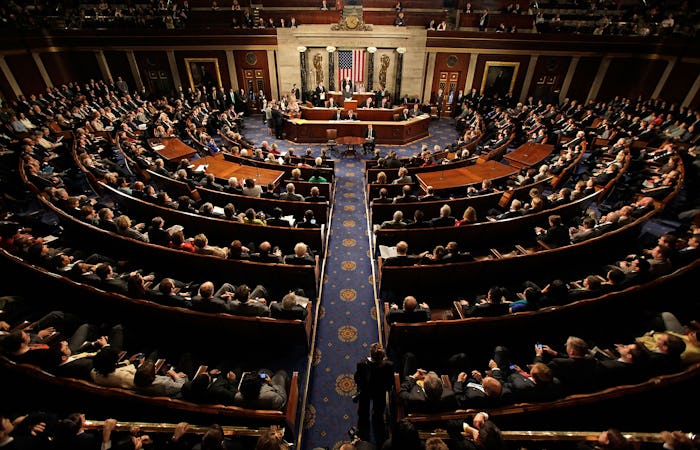News

How Many Electors Have Spoke Out Against Trump? They Are In A Tough Position
One elector who is set to cast his vote for President-elect Donald Trump on Monday has reportedly received over 48,000 emails from concerned citizens. The overwhelming majority of those emails have been pleading with him to go against history and vote against Trump. For the safety and good of the nation. While many such voters are hoping for a last-ditch effort to stop a Trump presidency in the 11th hour, not too many electors have spoken against Trump. Not because they necessarily agree with the president-elect, but because they feel honor-bound to do what they feel is their civic duty and vote the way their state has chosen.
Ever since President-elect Trump's shocking win against Democratic nominee Hillary Clinton, voters who aren't happy with the decision have been trying desperately to find a way to change the outcome of the election. Particularly since Clinton won the popular vote by 2.6 million votes but did not win enough electoral votes to secure the election (270 electoral votes are needed; Trump won 306 while Clinton gained just 232). The last president to enter the White House after losing the popular vote was former President George W. Bush in 2000, when he took office instead of Al Gore in a hotly contested election.
The Electoral College vote is set to happen on Dec. 19, and Trump critics would need to flip as many as three dozen electors to change the result of the election and send the decision to Congress. Throughout the 226 years of the Electoral College, very few electors have changed their vote; to date, there have been 157 faithless voters, 71 of which were changed because the candidate died before they could take office.
only two electors have come forward to say they will not vote for Trump (both of whom are coincidentally from Texas); Republican elector Art Sisneros resigned his position rather than voting for Trump, who wrote a blog post explaining why:
If Trump is not qualified and my role, both morally and historically, as an elected official is to vote my conscience, then I can not and will not vote for Donald Trump for President. I believe voting for Trump would bring dishonor to God. The reality is Trump will be our President, no matter what my decision is.
Another Republican elector from Texas, Christopher Suprun, wrote an editorial for The New York Times about his decision to become a so-called "faithless elector" (an elector who will not vote the same way that his state voted), and his hopes that some of his fellow electors will follow suit.
The election of the next president is not yet a done deal. Electors of conscience can still do the right thing for the good of the country. Presidential electors have the legal right and a constitutional duty to vote their conscience.
Unfortunately for Suprun, it looks as though many of his fellow electors are planning on voting for Trump. Even Kentucky elector Jim Skaggs, who told ABC News that he met Trump as a younger man and "wasn't impressed" with him, will be voting for him:
I hope he is far better than I think he is. I fully intend to vote for Donald Trump. I think it's a duty.
Duty seems to be the buzzword among electors as they continue to be plagued with emails. Arizona elector Carol Joyce said:
They've caused me great distress on my computer, that's for sure. I average anywhere from a thousand to 3,000 emails a day. And I'm getting inundated in my regular mailbox out front — anywhere from 17 to 35 letters a day coming from Washington state, Oregon, all around the country. Hand-written, some of them five or six pages long, quoting me the Federalist Papers, the Constitution, asking me again out of desperation not to vote for Donald Trump.
But at the end of the day she, like the majority of the Electoral College, plan to vote for Trump.